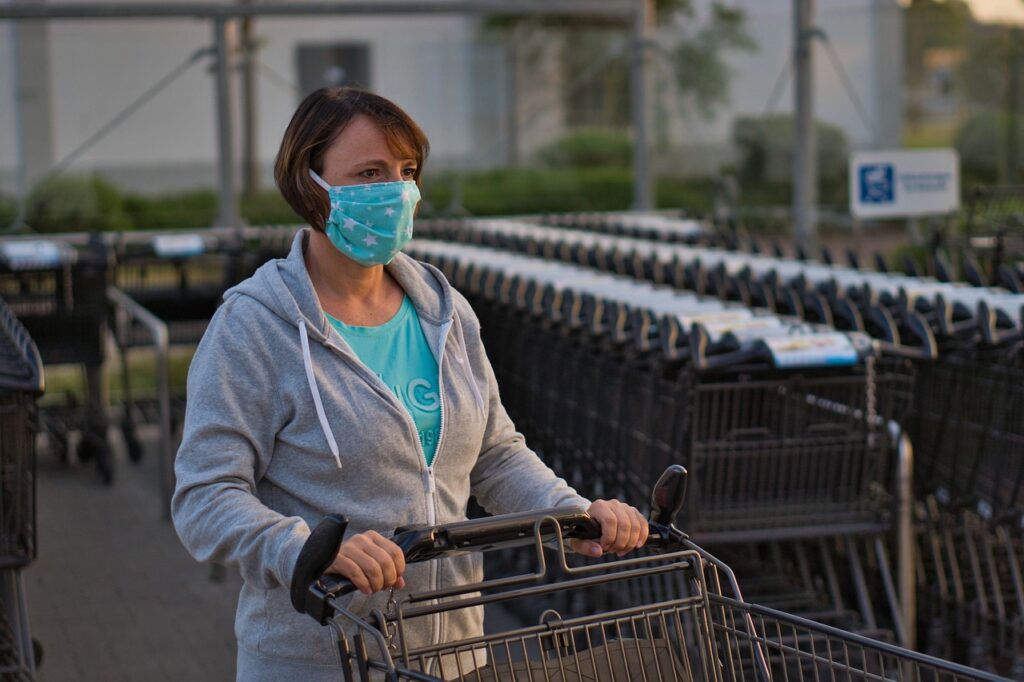When it comes to food safety, prevention is the best defense. Foodborne illnesses are still a prevalent issue in today’s world, and taking steps to handle and store your food properly is crucial for preventing these illnesses. By following simple guidelines and best practices, you can keep yourself and your family safe from illnesses caused by contaminated food.
The first step in proper food handling is to wash your hands thoroughly before and after handling food. This will prevent the spread of bacteria and viruses that can cause illness. It’s also essential to separate raw meats from other foods to prevent cross-contamination. This means storing raw meats separately from ready-to-eat foods, such as fruits and vegetables, in the refrigerator. When cooking, always use a food thermometer to ensure that meat reaches the recommended internal temperature to kill any harmful bacteria.
In addition to proper food handling, food storage is also an essential aspect of food safety. Keeping your refrigerator, freezer, and pantry organized and clean is crucial for preventing foodborne illness. When it comes to refrigeration, keep your refrigerator temperature below 40°F and your freezer temperature below 0°F to prevent the growth of harmful bacteria. Label and date all food items to keep track of how long they’ve been stored. It’s also important to keep your pantry well-stocked but organized to prevent pests and contamination.
By following these simple tips and guidelines, you can protect yourself and your family from foodborne illnesses. Remember to always wash your hands, use a food thermometer when cooking, and properly store your food to prevent contamination. Prevention is key when it comes to food safety, so take the necessary steps to keep yourself and your loved ones healthy.
The Importance of Proper Food Handling
Proper food handling plays a critical role in preventing food contamination and food poisoning, making it essential to follow guidelines and best practices. One of the most crucial steps in food handling is to wash your hands thoroughly. Use soap and warm water, and scrub your hands for at least 20 seconds before handling any food.
Another important tip is to separate raw and cooked foods to prevent cross-contamination. Use separate cutting boards and utensils for raw meats, poultry, and seafood, and make sure to clean them thoroughly after each use.
When cooking, it is important to use a food thermometer to ensure that the food is cooked to the right temperature. The temperature varies depending on the type of food, so it’s crucial to follow the recommended guidelines. Also, make sure to keep hot food hot and cold food cold, as this will prevent bacteria from multiplying.
Lastly, always check the expiration dates on food before consuming them. Consuming expired food can lead to food poisoning and other illnesses. By following these food handling tips and guidelines, you can significantly reduce the risk of foodborne illnesses and keep yourself and your family safe.
Food Storage Guidelines
Proper food storage is crucial in preventing bacteria from multiplying and causing foodborne illnesses. Here are some important guidelines to follow when storing food:
- Always check the expiration date before storing any food.
- Store raw meat, poultry, and seafood on the bottom shelf of the refrigerator to prevent any juices from dripping onto other food.
- Use air-tight containers or wrap food tightly in plastic wrap to keep it fresh.
- Refrain from overfilling your refrigerator or freezer as this can affect the temperature and potentially spoil your food.
- Keep your refrigerator temperature at or below 40°F (4°C) and your freezer temperature at or below 0°F (-18°C).
- Avoid placing cooked food next to raw meat, poultry, or seafood to prevent cross-contamination.
- Label and date all containers to keep track of their freshness.
Following these guidelines will help ensure that your food stays safe and free from contamination. By properly storing your food, you can prevent harmful bacteria from multiplying and causing illness.
Refrigerator Storage Tips
Proper refrigerator storage is crucial for preventing foodborne illnesses and ensuring food stays fresh. Follow these tips to store food in the refrigerator properly:
- Keep the temperature of your refrigerator at or below 40°F (4°C).
- Store raw meat, poultry, and seafood in separate containers or sealed plastic bags on the bottom shelf to prevent cross-contamination with other foods.
- Eggs should be stored in their original carton on a middle shelf, rather than in the door, which can be warmer and lead to shorter shelf life.
- Label and date all stored foods to ensure that they are used within a safe amount of time.
- Do not overload your refrigerator as it can affect the temperature and lower its efficiency.
- Regularly clean the interior of your refrigerator to prevent the growth of bacteria and mold.
By following these tips, you can help keep your food safe and fresh for a longer period of time.
Freezer Storage Tips
When it comes to keeping your food safe, the freezer plays a significant role in preventing spoilage and contamination. Here are some freezer storage tips to help you store perishable food properly:
- Make sure the freezer temperature is set at 0°F (-18°C) or below to keep perishable food safe.
- Before freezing, make sure the food is fresh and of good quality.
- Wrap food tightly in plastic wrap, aluminum foil, freezer paper, or airtight containers to prevent freezer burn and to keep out moisture and air.
- Label and date all frozen food to ensure that you use it before it becomes too old.
- Know the storage time for different types of food. For example, cooked poultry and meat can be stored for up to six months, while cooked fish can be stored for up to three months.
- Do not overload the freezer. Leave enough space for air to circulate around the food and for the freezer to work efficiently.
By following these freezer storage tips, you can prevent food spoilage and contamination, and keep your food safe for consumption. Remember to always prioritize food safety by properly storing and handling your food products.
Pantry Storage Tips
When it comes to food safety, proper storage is just as important as proper handling and preparation. Keeping your pantry organized and clean can go a long way in preventing pests and contamination from affecting your food. Here are some helpful pantry storage tips to keep your food safe:
– Always check the expiration dates on your food products before placing them in your pantry.- Use sealed containers or bags to store dry goods like cereal, flour, and sugar. This will prevent pests like bugs and rodents from getting into your food.- Keep your pantry clean and free from any food spills or crumbs that could attract pests or lead to bacterial growth.- Store canned goods and jars in cool, dark places to prevent spoilage and preserve their quality.- Rotate your food products regularly, placing newer items at the back of the pantry and using older items first. This will help ensure that nothing spoils or goes unused.- Consider labeling your containers with the name of the food item and its expiration date to help you keep track of what you have and when it needs to be used.
By following these pantry storage tips, you can help prevent contamination and spoilage in your food, ultimately keeping you and your family safe and healthy.
Food Safety Practices
Preventing foodborne illnesses is essential for maintaining the health of both you and your family. One of the most important practices is washing your hands thoroughly before handling any type of food. Make sure to use warm water and soap, scrubbing for at least 20 seconds to ensure that all bacteria are removed. Additionally, it’s vital to keep your cooking area clean and to sanitize all surfaces that come into contact with raw meat or produce.
When storing food, always make sure to keep raw meats and seafood separate from ready-to-eat items to prevent cross-contamination. It’s best to store meats on the bottom shelf of your refrigerator to prevent any drips from contaminating other foods. Additionally, make sure to check expiration dates and properly dispose of any expired or spoiled food to avoid consuming potentially harmful bacteria.
Cooking food to the right temperature is also key in preventing foodborne illnesses. You should always use a food thermometer to ensure that meat and poultry are cooked to the proper temperature. The recommended minimum safe temperature for meats is 165°F.
By following these essential food safety practices, you can help prevent the spread of harmful bacteria and viruses. Stay vigilant and stay healthy!
Foodborne Illnesses and How to Prevent Them
Foodborne illnesses are a significant concern in the food industry as they can lead to serious health problems. These illnesses are caused by bacteria, viruses or parasites that contaminate food. The most common type of foodborne illness is bacterial, with Salmonella and E. coli being the most common culprits. However, there are ways to prevent these illnesses from occurring.
To prevent foodborne illnesses, it’s important to follow basic food safety rules. Always wash your hands thoroughly before handling food and after handling raw meats. Keep food at the proper temperatures, refrigerated below 4°C (40°F) and frozen below -18°C (0°F). Always cook meat to the recommended internal temperature to kill any harmful bacteria. When purchasing food, check for tears or damage to packaging and avoid any food that looks or smells spoiled.
It’s also important to be aware of high-risk foods, such as raw or undercooked meat, raw seafood, and unpasteurized dairy products. These foods are more likely to cause foodborne illnesses, so they should be handled with extra care. When eating out, be sure to choose reputable restaurants that have a good track record with food safety.
In conclusion, preventing foodborne illnesses is crucial for maintaining good health. By following these simple guidelines, you can decrease the likelihood of getting sick from contaminated food. Be aware of high-risk foods, cook meat to the recommended temperature, and thoroughly wash your hands and your food. Remember, prevention is the key to food safety.
Keeping Yourself Safe at Restaurants
When dining out at restaurants, it’s crucial to be aware of potential risks and take necessary precautions to keep yourself safe from foodborne illnesses. Here are some tips to follow when eating out:
1. Choose reputable restaurants: Research the restaurant beforehand to ensure it has a good reputation for food safety and hygiene.
2. Check food temperatures: Make sure hot food is hot and cold food is cold. If your food seems to be at unsafe temperatures, send it back and ask for a new dish.
3. Avoid undercooked or raw food: Raw or undercooked meat, eggs, and seafood can harbor harmful bacteria. Make sure your food is cooked thoroughly before eating.
4. Be cautious with high-risk foods: Foods that are more susceptible to contamination, such as raw sprouts or unpasteurized dairy products, should be avoided.
5. Use utensils: Don’t use your hands to grab food from communal dishes. Use utensils instead to prevent the spread of bacteria.
By following these tips, you can significantly reduce the risk of experiencing a foodborne illness while dining out. Remember to always be vigilant and take the necessary precautions to ensure your safety.
Safe Cooking Temperatures and Cleaning Practices
Cooking food to the right temperature is crucial for preventing foodborne illnesses. Use a food thermometer to ensure that meat, poultry, and fish are cooked to the proper temperature. According to the USDA, the safe minimum cooking temperatures are:
- Beef, pork, veal, and lamb (steaks, roasts, and chops): 145°F (63°C)
- Ground meats (beef, pork, veal, and lamb): 160°F (71°C)
- Poultry (chicken, turkey, duck, and goose): 165°F (74°C)
- Fish and shellfish: 145°F (63°C) or until the flesh is opaque and separates easily with a fork
Proper cleaning practices are also essential in preventing foodborne illnesses. Wash your hands with soap and water before handling food and after handling raw meat, poultry, or fish. Wash cutting boards, dishes, utensils, and countertops with hot, soapy water to prevent cross-contamination. It is also essential to wash fruits and vegetables before consuming them.
By following these guidelines, you can ensure that your food is safe to eat and prevent the risk of foodborne illnesses.
Conclusion
Preventing foodborne illnesses is crucial for maintaining good health. By following the tips and guidelines outlined in this article, you can reduce the risk of food contamination, spoilage, and sickness. Proper food handling, storage, and cooking practices are the key components of food safety.
It’s important to know the right temperatures for cooking meat, poultry, and seafood to avoid the growth of bacteria. Additionally, keeping a clean kitchen and washing your hands regularly can prevent cross-contamination. Make sure to store your food properly in a refrigerator or freezer, and keep your pantry organized and clean to prevent pests and contamination.
When dining out at a restaurant, choose reputable establishments that follow proper food safety practices. You can also inquire about the source of the ingredients used in the dishes. By making informed choices, you can reduce the risk of foodborne illnesses.
Remember that prevention is the key to food safety. By following the tips and guidelines in this article, you can protect yourself and your family from foodborne illnesses and stay healthy.



